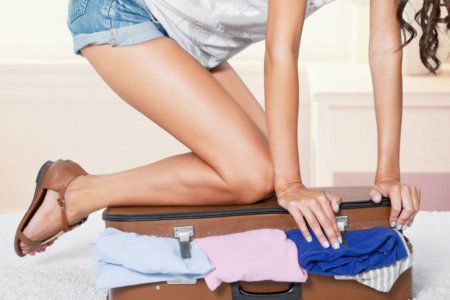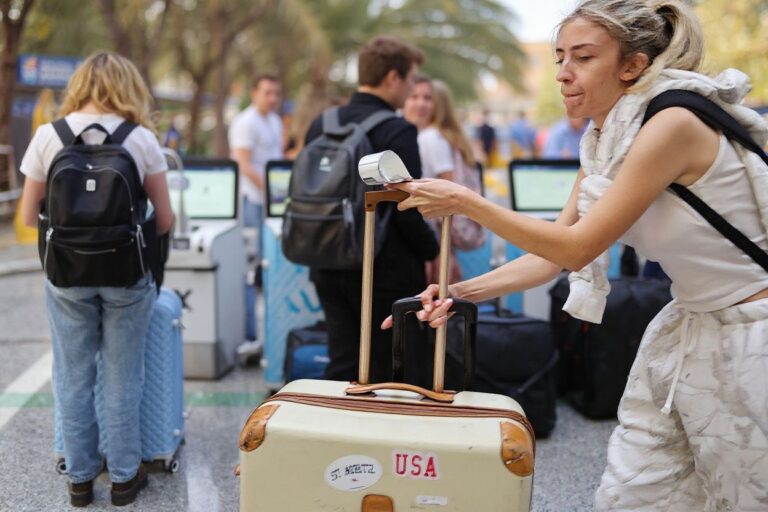
If you’ll be traveling abroad to study soon, first of all, congratulations! Now comes the hard part – deciding what goes with you, and what doesn’t.
Many think that packing for studying abroad is like packing for a vacation. While the two circumstances share some similarities, it can still be pretty daunting – after all, you’re not packing for a trip to Disney World, but packing for months, or even years abroad.
On top of all the paperwork, ticket booking, and accommodation hunting, it can get overwhelming to think about packing. Many first-time international students tend to make the common mistakes of overpacking, bringing restricted items, or prioritising the wrong items.
Don’t worry about being one of them because we’ve prepared an extensive guide on some essential packing tips, along with things you can skip out on bringing.
 As the kids nowadays say, thrift stores have all the heat.
As the kids nowadays say, thrift stores have all the heat.
Good to know before you travel abroad
One very important point that most people don’t consider – not everything has to be brought from home.
Students who come from countries with weaker currencies may worry that things will be expensive when they study abroad. That’s why they attempt to stuff as much as they can into their bags and bring along so many unnecessary things.
In reality, it doesn’t have to be so expensive to study abroad – you just have to know where to look.
Before you travel overseas, follow your university community on Facebook, Reddit, or Instagram. Chances are that there will be senior students who are graduating, and they will be selling off or giving away their items to those who need them.
That’s a great way to score relatively decent kitchen equipment, winter coats, textbooks, and even things like unused toilet paper, stationery, and clothes hangers. Your seniors get to make money, and you’ll get things for cheap, or completely free.
Alternatively, look for thrift stores or Salvation Army stores. You could get things like racks, heaters, and more – and if you’re lucky, you may even score a rice cooker. While they may be used, they’re generally still in good condition.
And once it’s your turn to graduate, you’ll be the one selling or giving away your stuff to your juniors to avoid overpacking for home. Yay for bonus money!
Now that we got that out of the way, let’s reevaluate your packing practices by identifying the things you don’t need.
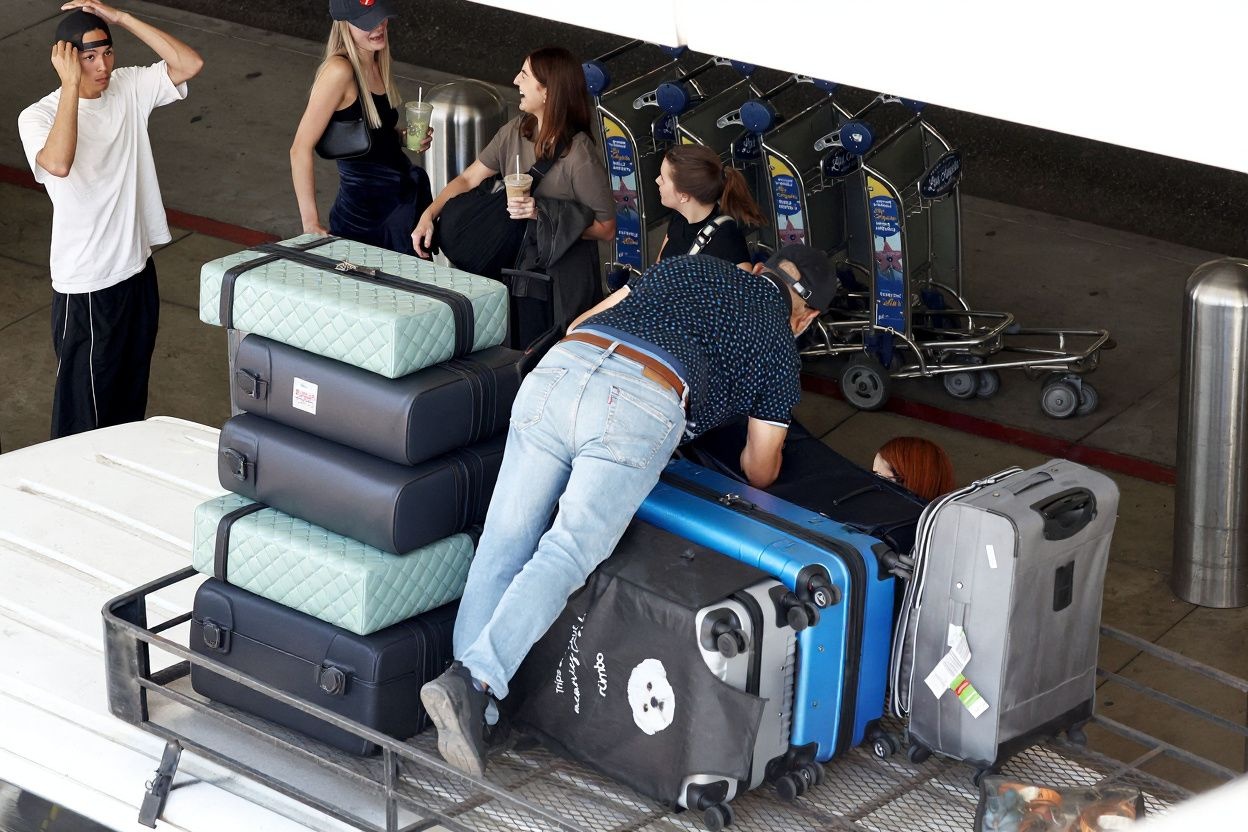 Look at the amount of luggage this poor guy has to handle. It can’t be all yours, right?
Look at the amount of luggage this poor guy has to handle. It can’t be all yours, right?
Packing tips: What to not bring when studying overseas
Some of these may be controversial, but trust us, you won’t die without them.
Too many shoes
The sneakerheads may find this one painful, but it has to be said. You certainly do not need to bring five or six pairs of shoes for studying abroad. Think of all the space they take up.
Packing one good pair of sneakers and slippers is totally fine. If you want to be fancy and check out the local nightlife, throw in a pair of heels. Versatile footwear works best, such as shoes you can wear to class and to dinner.
Toiletries
You can very well get toothpaste, toothbrushes, shampoo, and body wash wherever you’re going. You don’t need to bring along boxes or bottles that will certainly weigh your luggage down. Convenience stores and sundry shops sell those in bulk, so don’t worry.
If you have to bring some just to settle in, bring travel-sized items and maybe a disposable toothbrush or two. That should get you through at least the first week of studying abroad.
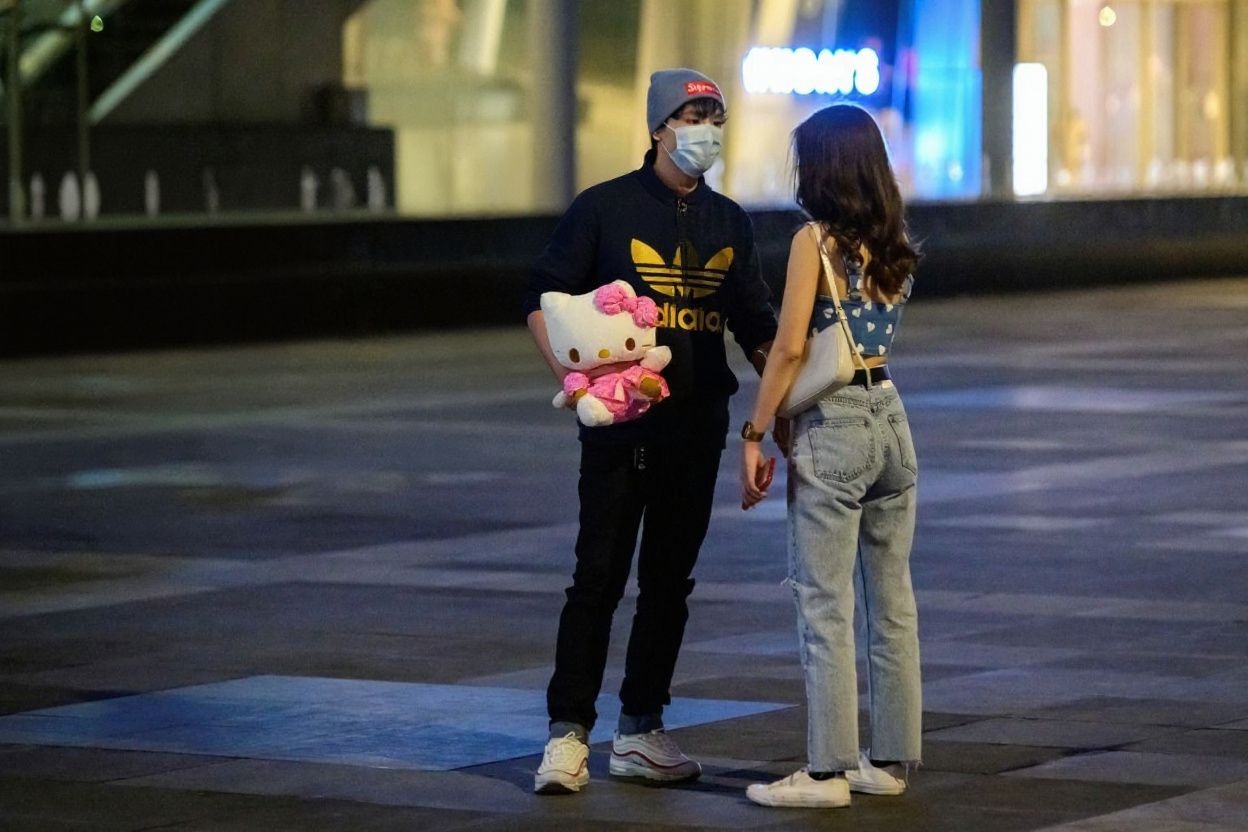 We get that it’s a gift from your partner, but maybe consider bringing a smaller one?
We get that it’s a gift from your partner, but maybe consider bringing a smaller one?
Bedding and plushies
You most certainly do not need to pack pillows, blankets, or bedsheets for wherever you’re going. Most accommodations provide those, and unless you’re renting a place without any of those, you can very well do without them. If you have to bring a pillowcase or a sheet, at least roll them up, or pack clothes into them to save space.
If you’re incapable of sleeping without your comfort blanket, pillow or plushie, pick your favourite and hand-carry during your trip. Who cares if you’re a grown adult carrying your whale plushie through immigration and onto the plane? They’re not the boss of you.
Cooking gear and utensils
This one can be a little controversial – we all know how much you love your rice cookers. But if you’re struggling for space, you really don’t need to be packing your pots and pans to study overseas.
Most accommodation spaces come with kitchens that you can use. If you’re absolutely stuck with no cooking gear, at least consider a multi-cooker. You’ll get more things done and have more variety, at least.
Fun fact: if you’re studying abroad in Japan, the Japanese discount store chain Don Don Donki sells bags of individually wrapped, microwavable rice. So leave the rice cooker at home — you’ll be alright.
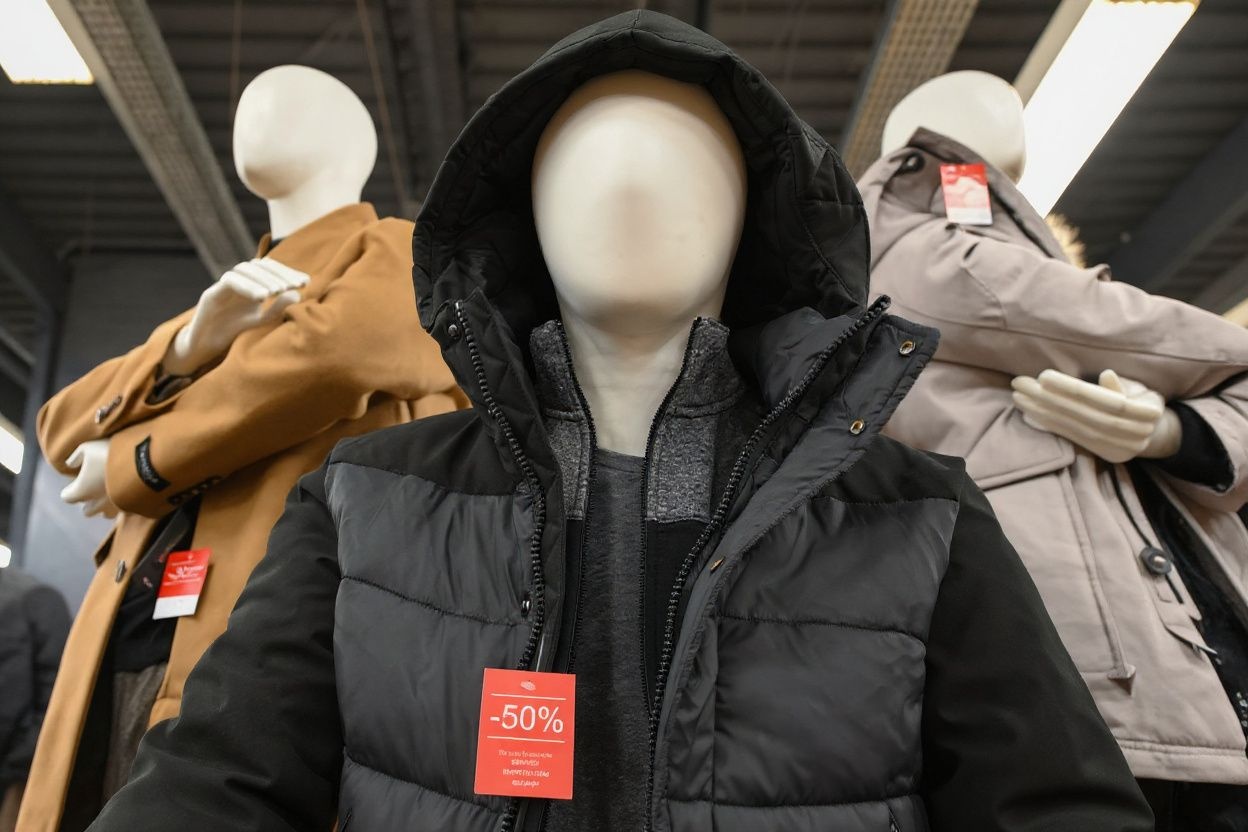 You really only need one good winter coat for the cold weather, and many can be found wherever you’re going.
You really only need one good winter coat for the cold weather, and many can be found wherever you’re going.
Certain clothing
Even if you roll up your clothes, they still take up most of your luggage space. It’s unavoidable, but there’s an easy solution to this: you can buy clothes while studying abroad as well.
Bring your more expensive – maybe even formal – pieces rather than packing six sets of pyjamas. Once you’re settled in, hop on to your nearest mall to grab some cheap fits – t-shirts, shorts, even underwear and socks can be found anywhere, and stores like T.J. Maxx have items on sale all the time.
Alternatively, if this is your first time travelling to a country with cold weather, buy winter clothing or coats there – it’ll be cheaper than going to Uniqlo in your home country. Or as mentioned above, visit a thrift store to score some cheap goods.
Styling tools
Your hair dryers, straighteners and/or curling irons may not work abroad, as some countries have different electric outlets. Even with a converter, you risk damaging your tool from the change in electrical voltage, so definitely skip out on bringing your US$600 Dyson Airwrap and all its bulky attachments.
Even if your accommodation doesn’t come with a hair dryer, there’s always the natural option – air drying your hair until you get a hair dryer of your own.
Electronics
At most, you will need your laptop or tablet for classes or personal entertainment. You certainly do not need to lug your personal computer (PC) tower, external keyboard, mouse and second monitor all the way with you. Use cloud storage like Google Drive or Dropbox to store your essential files for accessibility.
If you want to bring along a gaming console, opt for something smaller, like a Nintendo Switch. As cool as a PS5 is, we have doubt that your luggage or your dorm room can fit it in the way you envision it to.
 Always make sure you check if your carry-on luggage follows the airline’s approved dimensions.
Always make sure you check if your carry-on luggage follows the airline’s approved dimensions.
Pack right, pack light, and have a safe flight!
Packing for studying abroad is not just about playing Tetris with your essentials. Here are the unskippable, need-to-know bits, with additional packing tips.
File your travel-related documents
You know you’ll need your passport and visa, but make sure you have any other travel-related documents necessary for your time abroad. For example, things like an international driver’s permit, health insurance, medical records and so on.
Have physical copies of your documents, as well as digital ones, for easy accessibility at all times.
Roll your clothes
You’ve probably heard of this packing tip before, but it’s so good that we have to share it again. Roll up thin clothes and undergarments into thicker clothes to line the corners of your suitcase – not only does it save space, but it will also keep your clothes mostly wrinkle-free.
Quick related packing tip – check up on the country and university you’re studying in for dress codes and local customs. Some countries deny foreigners entry to places unless they’re dressed appropriately, so don’t show up in Lululemon leggings and a crop top at a mosque or temple, for example.
If you’re still struggling for space, try the age-old method of wearing multiple layers during your flight. You might look a little silly, but at least you’ll get to bring your favourite clothes.
Medications and first-aid
We’re not saying you have to bring your entire first-aid kit with you – wherever you’re going, there are sure to be medical services and first-aid kits around. But it’ll be a good idea to pack some light items for the trip abroad, at least until you get settled in.
Include plasters, antibacterial wipes, medical tape and easy-to-cut bandages. If you have existing health conditions, make sure to pack your medications and prescriptions and declare them at immigration if necessary.
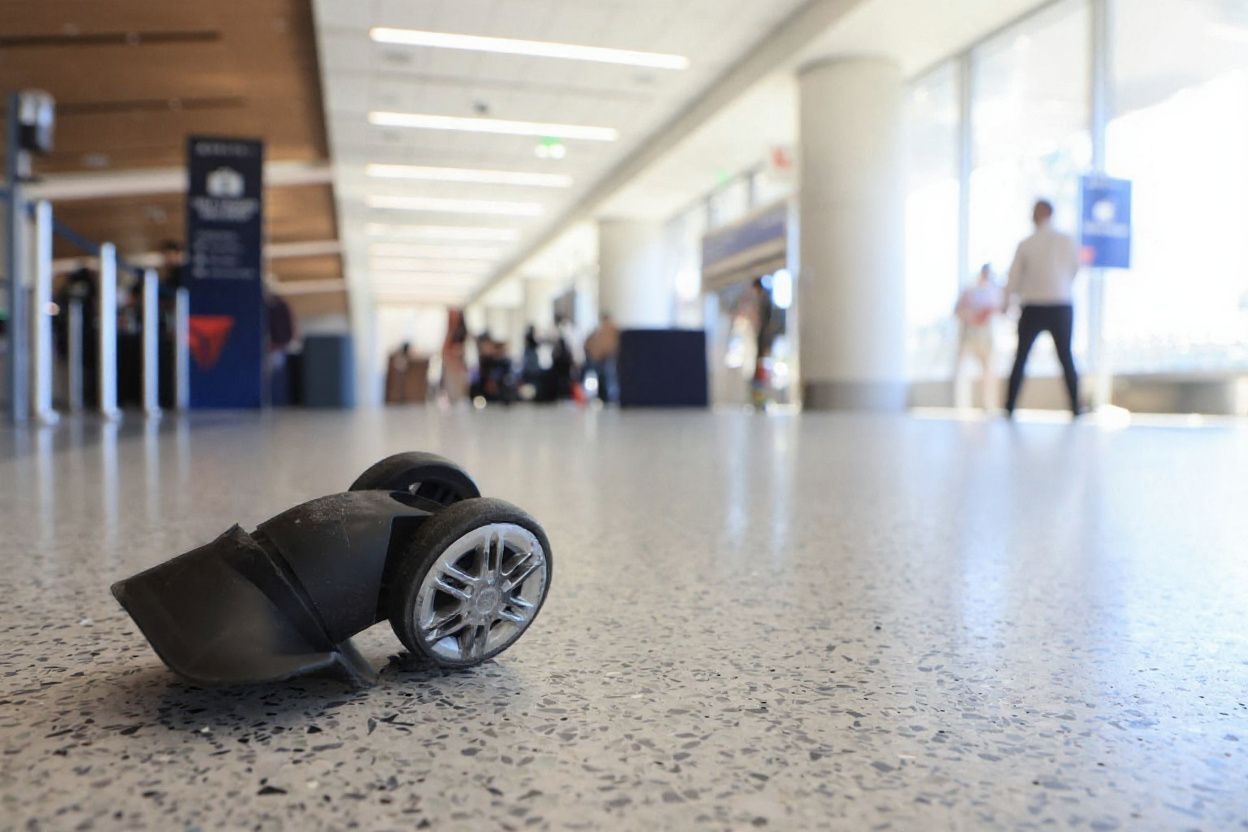 An extra bag would come in handy in case your first one malfunctions too.
An extra bag would come in handy in case your first one malfunctions too.
Extra space
If you can afford to, leave some extra space in your bag for the things you’ll eventually buy and bring back, such as souvenirs, clothes, or gadgets. Even if you attempt to sell or give away your things after graduating, you’re bound to still end up with more than what you came with.
Some people recommend packing your suitcase into a bigger suitcase, just to get the most out of your luggage space. That way, you get an extra bag when you go home.
Maximise your carry-on
You’ll probably be tired by the time you get to your university accommodation, and the only thing on your mind is taking a hot shower and jumping into bed. Unpacking everything is hardly something you don’t want to tackle right from the get-go. This is where your carry-on will come in handy.
Pack a change of comfortable clothes and roll them up, lining the bottom of your bag. Have a small, separate zip-loc bag for your toiletries, tucked away on the side. Pack your valuables, electronics, water bottle and more as you normally would, and you’ll have everything you need for the first 24 hours abroad.
We have more information on great packing tips to live by, so check that out.










